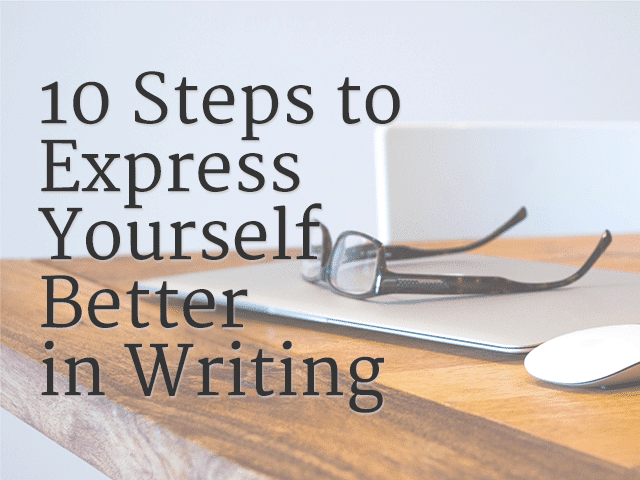The following are some tips for controlling your emotions.
The fact that some people feel emotions more intensely than others is not problematic. It's okay to feel intense emotions. It is crucial to learn how to manage your emotions and respond to them thoughtfully if you want to live a healthy, happy life. One of our best tools for doing this is emotional self-control.
Don’t React – Respond:

Everyone has experienced times when they felt emotionally overburdened. Acting out people might make hasty remarks they later regret. Thus, when feeling a strong emotion, learning to respond rather than react is the best course of action. You take a moment to acknowledge how you are feeling before responding to your emotions. As a feeling arises in your body, pause. Practice conscious response instead of an instantaneous response. Through this simple action, you have the chance to communicate your thoughts and feelings more effectively. We can more readily live up to our values when we know how to self-regulate. We have the ability to be in charge of our lives, face obstacles head-on, find opportunities in failures, and keep going despite difficulties. By giving yourself time to reflect on your next words in light of how you are feeling, you can help people understand you better.
Refocusing Your Mind and Body:

Image Source: ageright.org
To regain control of your emotions, you must first recognize when they are out of control. Try to recognize it in the moment by asking how it makes you feel both physically and mentally. To stop spiralling emotions, awareness and careful, thought is required. Only through recognition can you begin to centre yourself in the present.
Breathe in deeply to calm yourself:
Your breathing may become out of control when your emotions are out of control, which will only make you feel more stressed and anxious. When you sense this spiral beginning, take a few deep breaths to relax your body and mind, and then stop it. Intentional deep breathing is the best remedy, if you can do it.
Give yourself some space:

Image Source: valleyssteps.org
According to Botnick, you should put distance between yourself and powerful emotions to ensure that you're responding to them logically. It's possible that this separation will actually take place, as in someone fleeing a challenging circumstance. Giving emotions a break until you are better able to handle them is acceptable, even though it is not healthy to completely deny or block out emotions. Don't forget to visit them again though. Good things are only briefly sidetracked.
Try meditation:

Image source: artofliving.org
If you already meditate regularly, it might already be one of your go-to strategies for handling strong emotions. You can become more conscious of all emotions and experiences by meditating. As was mentioned earlier, emotional regulation can be made simpler by learning to accept all of your emotions. You can develop these acceptance skills more by meditating. You'll be able to unwind and sleep better as well.
Stay on top of stress:

Image source: 2.bp.blogspot.com
Emotional control can be challenging when you're stressed. Even those who typically have good emotional control may find it more difficult to do so in situations of extreme stress and tension. You can control your emotions more effectively by reducing your stress levels or learning more effective stress management techniques. One technique for reducing stress that promotes mindfulness is meditation. Even though they can make it more bearable, they won't be able to completely eliminate it.
Here are a few more effective techniques for stress reduction:
:max_bytes(150000):strip_icc()/how-to-reduce-stress-5207327_FINAL-907db114a640431ba1e8ecbb9e81b77f.jpg)
Image source: verywellmind.com
obtaining adequate rest.
planning humorous conversations with friends.
exercise.
time spent outdoors.
allowing for leisure activities and hobbies.
Know when to express yourself:

Image source: the write practice.com
Even powerful emotions have their proper time and place. People frequently cry uncontrollably after losing a loved one, for instance. After being dumped, screaming or even punching your pillow might help you release some tension and rage. But there are other circumstances where restraint is required. You can decide when it's appropriate to express your feelings and when you might want to hold onto them for the time being by being aware of your surroundings and the situation.
Accept your emotions — all of them:

Image Source: micro medium.com
You might try burying your feelings if you want to get better at controlling your emotions.
It may seem helpful to tell yourself, "Don't freak out," or "It's not that big of a deal," when you start to hyperventilate after receiving good news or collapse on the floor sobbing and screaming when you can't find your keys.
However, this makes your experience meaningless. You value it highly.
You can feel more at ease with your emotions if you accept them as they are. You can feel intense emotions more fully and prevent extreme, counterproductive reactions by increasing your level of comfort with them.

:max_bytes(150000):strip_icc()/forty-healthy-coping-skills-4586742_final-c5f0e5b806d64ff1a297660bab2f3eb4.pngimg/fen3.jpg)